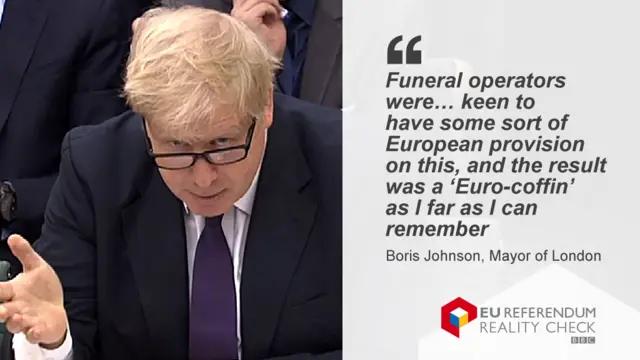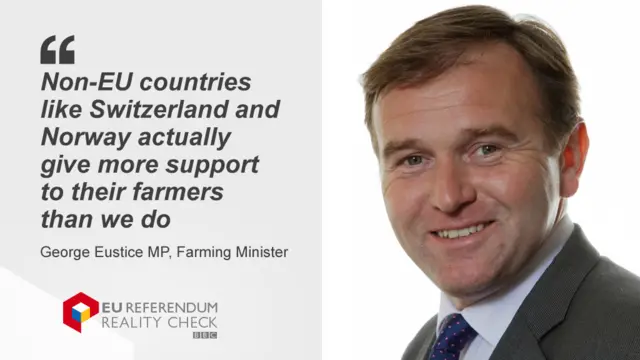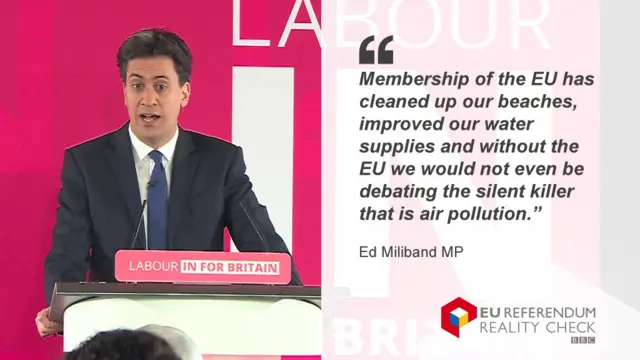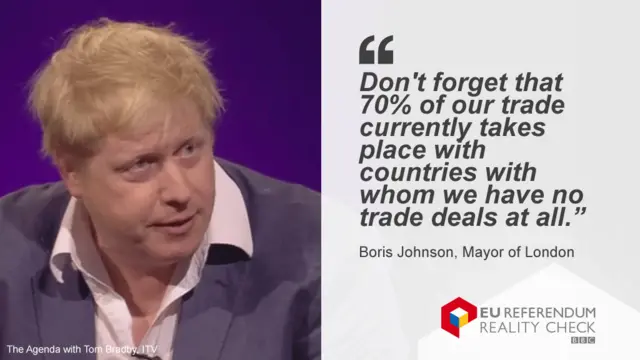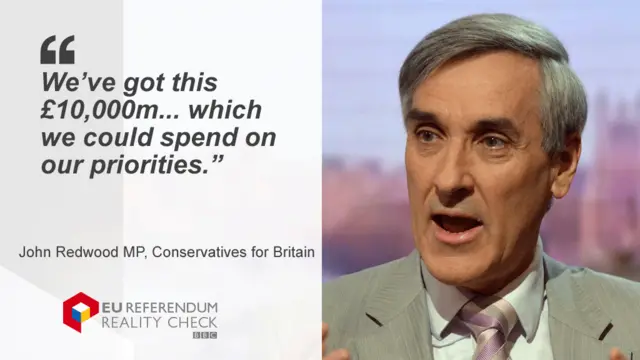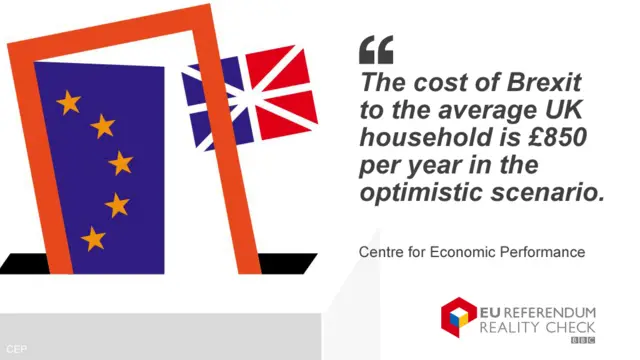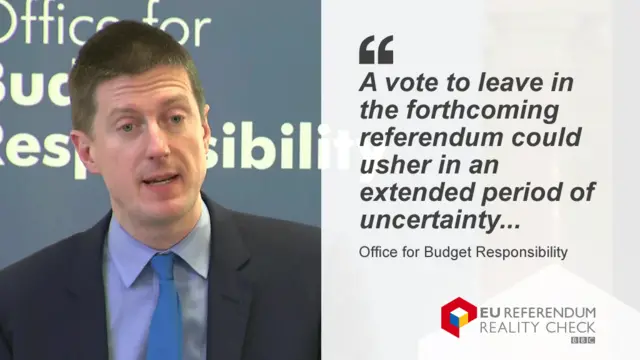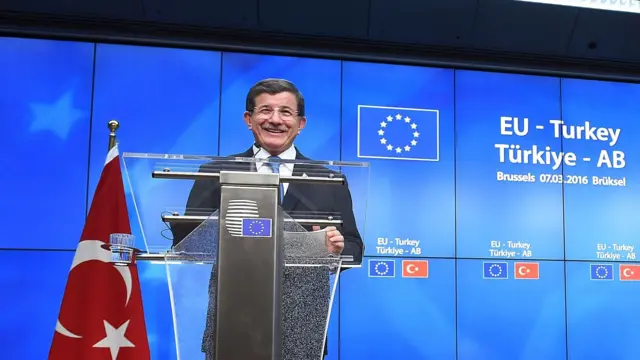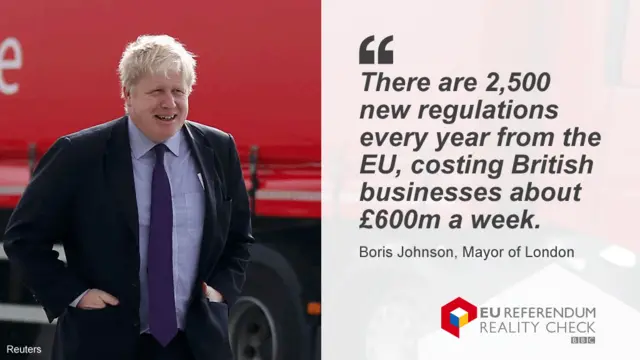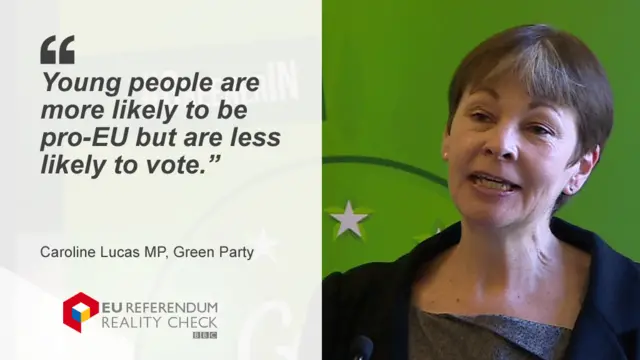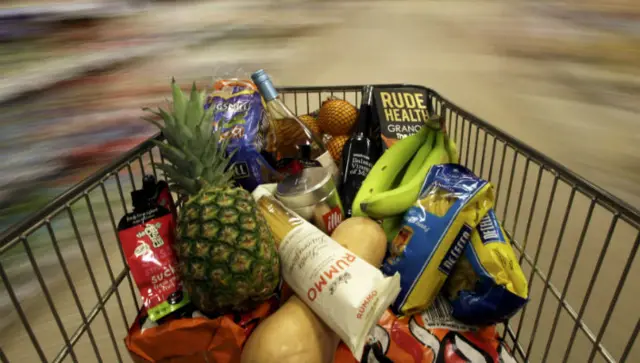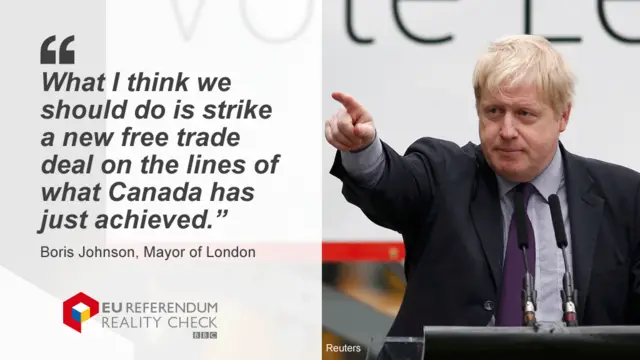Does the UK 'suffer an £8bn net loss to Europe'?published at 14:24 BST 5 April 2016
By Anthony Reuben
 Reality Check
Reality Check
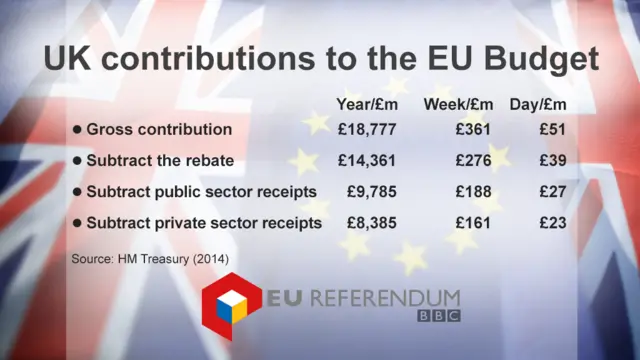
The claim: Phones4U founder John Caudwell says: "We suffer an £8bn net loss to Europe." He’s referring to the amount of money Britain pays into the EU budget each year.
Reality Check verdict: He’s right on the numbers – the UK contributes just over £8bn a year to the EU Budget after deducting the rebate and direct payments to public and private sector groups in the UK. Whether that counts as a loss depends on your perspective – that money is spent on running EU institutions, pan-European initiatives and projects in other countries.
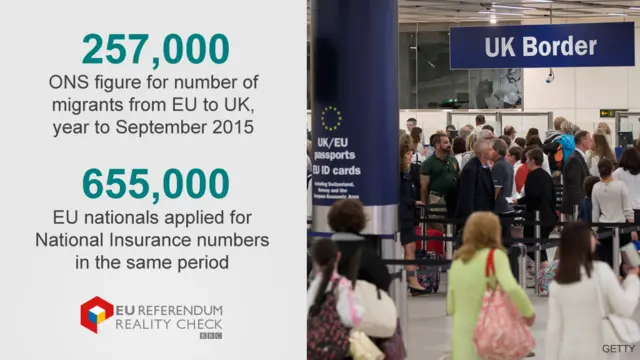
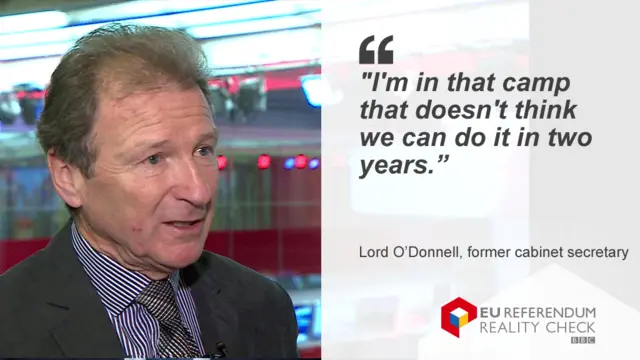
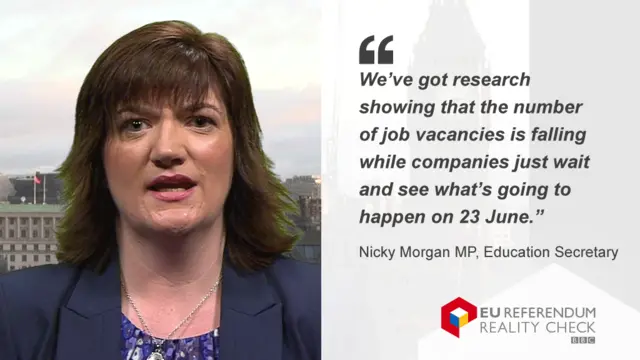
![Amber Rudd saying: They've analysed that [Brexit] risk and said £500m at least](https://ichef.bbci.co.uk/ace/standard/640/cpsprodpb/vivo/live/images/2016/3/24/8f4fcec9-af31-44e3-bc4b-e8c7954a80c0.gif.webp)
